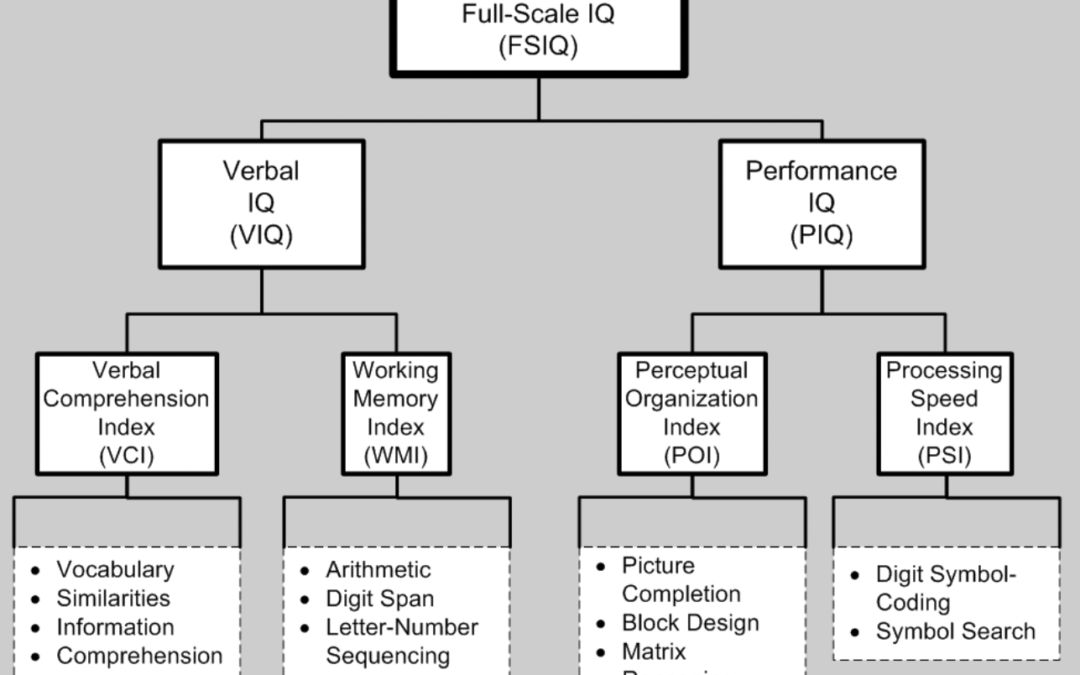Wechsler Intelligence Tests, developed by David Wechsler, are widely used to assess an individual’s cognitive abilities across various age groups. These tests provide a valuable window into an individual’s intellectual strengths, weaknesses, and overall cognitive functioning. Understanding and interpreting Wechsler test results require careful analysis and professional expertise. This article provides a comprehensive guide to help you interpret Wechsler Intelligence Tests effectively.
Understanding Wechsler Scales
Wechsler tests are composed of several subtests that measure different cognitive abilities. These subtests are categorized into four primary domains: Verbal Comprehension, Perceptual Reasoning, Working Memory, and Processing Speed. Each of these domains has its set of subtests that assess specific cognitive functions. Here’s a brief overview of each domain:
- Verbal Comprehension: This domain assesses an individual’s ability to understand and use verbal information. Subtests in this domain evaluate vocabulary, general knowledge, and comprehension of verbal instructions.
- Perceptual Reasoning: These subtests assess non-verbal and visual-spatial reasoning skills. They include tasks that require an individual to solve puzzles, recognize patterns, and perform visual-motor integration.
- Working Memory: Working memory subtests measure an individual’s ability to temporarily hold and manipulate information in their mind. These tasks include mental arithmetic and digit span tasks.
- Processing Speed: This domain evaluates an individual’s ability to quickly and accurately process simple visual information. Subtests in this category typically involve timed tasks.
Reviewing Composite Scores
The Wechsler tests provide a variety of composite scores, with the Full Scale IQ (FSIQ) being the most widely recognized. The FSIQ is a summary score that represents an individual’s overall cognitive functioning. In addition to the FSIQ, there are often scores for each of the four primary domains and various other index scores that focus on specific cognitive aspects. These scores are usually presented in standard scores, with a mean of 100 and a standard deviation of 15. A score at the 50th percentile indicates average performance.
Comparing to Norms
One of the key elements in interpreting Wechsler test results is comparing the scores to a normative sample of the population. The test results will provide information on how an individual’s scores compare to the average scores for their age group. If an individual scores above the 50th percentile, it suggests above-average performance, while scores below the 50th percentile indicate below-average performance.
Consider the Confidence Interval
In addition to the actual scores, Wechsler tests often provide a confidence interval around those scores. This range indicates the level of confidence that the true score falls within that range. For example, if an individual’s FSIQ is 100, and the confidence interval is 95-105, it means there is a high degree of confidence that the individual’s true FSIQ falls within this range. A wide confidence interval suggests greater uncertainty in the scores.
Evaluating Relative Strengths and Weaknesses
Interpreting Wechsler test results should involve an analysis of an individual’s performance on various subtests. Look for patterns in the scores. Are there specific areas where the individual excels or struggles? Identifying these relative strengths and weaknesses can provide valuable insights. For instance, if an individual scores significantly higher in verbal comprehension than in perceptual reasoning, it may suggest a verbal strength.
The Importance of a Comprehensive Approach
While Wechsler tests offer valuable insights into an individual’s cognitive abilities, it’s important to avoid overreliance on IQ scores alone. Intellectual functioning is influenced by a multitude of factors, including socio-economic background, cultural influences, educational opportunities, and more. Wechsler test results should be considered within the broader context of an individual’s life circumstances and other assessments.
Seeking Professional Guidance
Interpreting Wechsler test results can be a complex process, and it is highly recommended to consult with a qualified psychologist, educational specialist, or other professionals with expertise in psychological assessment. They can provide a more in-depth and nuanced interpretation of the results and offer recommendations based on the individual’s unique cognitive profile. These recommendations can be particularly valuable in educational and clinical settings, guiding interventions and educational plans.
Conclusion
Interpreting Wechsler Intelligence Tests requires a nuanced understanding of the test’s components, an appreciation of the context in which the individual was assessed, and a recognition of the limitations of IQ testing. Wechsler tests offer a valuable snapshot of an individual’s cognitive abilities, but they should be used in conjunction with other assessment tools and in consultation with professionals who can provide a comprehensive understanding of an individual’s intellectual strengths and areas for development.
